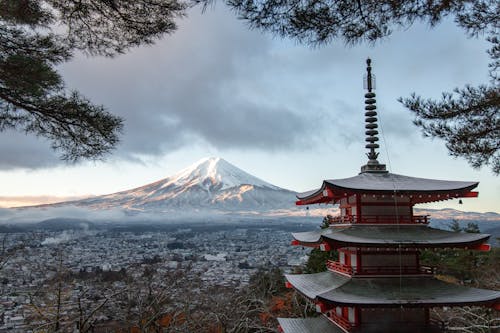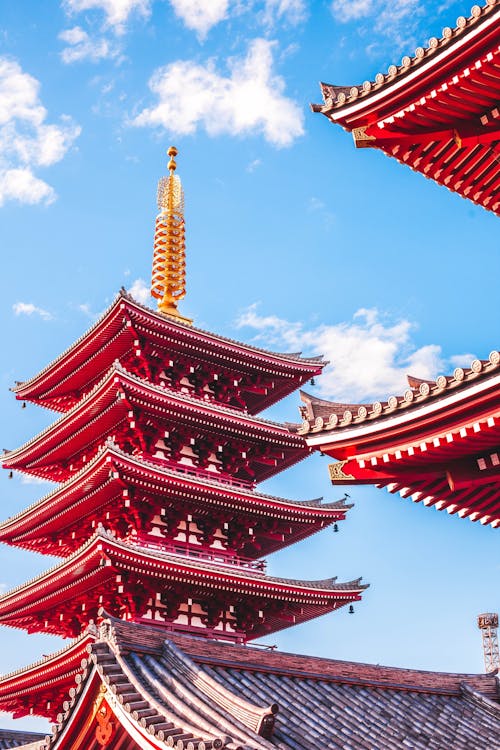
60+ Most Popular Japanese Last Names
Browse this list of popular Japanese last names to discover the history, origin, and meaning of the most common Japanese surnames we know today.
If you look back on the history of Japanese names, you’ll notice that it has changed drastically over centuries. Today, there is an estimate of 100,00 Japanese family names; however, it wasn’t always like that. So how did Japanese last names get to where they are today? Let’s get into it:
History of the Name
Centuries ago, Japanese men and women did not have surnames—specifically, the ordinary people of the public. The only people in Japanese society who were allowed to have a surname were those in positions of power or those of artistic ability.
During the Yayoi Period (300 BC-300 AD), Japan had developed a system of clans: people who were related to each other by blood, marriage, or common ancestor would use clan names as family names. This was a way to distinguish people by class and if they were commoners or nobles. Then, over time, during the Kofun period, clan leaders and their families started emerging and small kingdoms were established. It was hard to distinguish the status of each clan, so to make things easier, the Uji-Kabane was created: an aristocratic title attached to an Uji name.
There was a defect in this Uji-Kabane system of names and things got so confusing that the system started to fade.
So then what happened?
A Chinese custom was introduced to countries in East Asia, including Japan, that developed the different names people could have. 名字 is a Japanese word that means “family name” and is pronounced “Myouji.” In the past, it was pronounced “Naazana”, which was a type of formal nickname. In ancient China, people had 3 elements to their name: a family name, a first name, and a nickname. What’s the point of a nickname? Well, it was custom to avoid calling a noble person or a deceased person by their given name, and that customs as introduced to Japan.
While nobles would continue using their true first names, Samurai did things differently. Samurai, a member of a powerful military in Japan, would use nicknames. They also had 4 parts to their name: a true family name, an official family lineage name, a nickname for their first name, and a first name.
Fast forward to 1870 when a law was created, allowing every Japanese person — no matter if they were a commoner or a noble—to have family names. This law didn’t go into effect until 1875. It was difficult to change legally registered names, and that then created confusion around marital status with a wife taking her husband’s surname.
Until 1898, husbands and wives had to keep their separate family names. Then, things changed and women had to take the Japanese surname of their husband. In 2015, some married women started the fight to keep their maiden names, but a court stated that only after divorce could they return to using their maiden name. In 2019, it was stated that maiden names were informal and a woman must take the same surname of her husband.
What happened next?
Before the Meiji Era (1868-1912), some people had Japanese names passed on from their ancestors and others adopted the same family name even if they weren’t related by blood. After this period, every person had to legally register their family name—some names were favorable family names and others were either made up or taken from ancient Japanese last names.

Where are we now?
As mentioned before, there are thousands of Japanese names. There are hundreds of different Japanese names for both boys and girls, as well as hundreds of different surnames. Here’s a list of some of the most popular Japanese last names and their meanings, as well as a handful of common Japanese surnames for boys and girls:
Popular Japanese Last Names:
Saito 斉藤
Japanese Meaning: sai 斉 can be used to refer to a meal taken by monks and priests or an image of purity and divine worship. tō 藤 can be read as “fuji”, and means wisteria.
Kobayashi 小林
Japanese Meaning: “Small forest.”
Nakamura 中村
Japanese Meaning: “inside” or “middle” (naka 中) and “village” (mura 村). A person with this Japanese name might be from the middle village.
Yamamoto 山本
Japanese Meaning: “mountain” (yama 山) and “base/origin” (moto 本)
Ito 伊藤
Japanese Meaning: “this’ or ‘that one’ (伊) and wisteria (藤)
Watanabe 渡辺
Japanese Meaning: To cross or pass over (渡) and “area” or “border” (辺)
Tanaka 田中
Japanese Meaning: “rice field” (田) and “middle/in” (中). This would often be used for generic names, as we would with Jane Doe or John Smith.
Takahashi 高橋
Japanese Meaning: “Tall/high” (高) and “bridge” (橋)
Suzuki 鈴木
Japanese Meaning: “Bell tree”
Sato 佐藤
Japanese Meaning: Alongside the ever-popular “tō” 藤, we find (sa 佐), meaning “to assist”. Sato is the most popular last name because of the possibility that it descended from the great clan.
Popular Female Japanese Names:
Hana はな
一愛: One Love; 初凪: Beginning Calm; 初南: First South; 初名: First Name; 初夏: Early Summer
Himari ひまり
久茉莉: Long Jasmine; 仁葵: Benevolent Sunflower; 光愛里: Home of Light & Love; 光鞠: Ball of Light; 向日葵: Sunflower
Akari あかり
丹凛: Red Cold; 丹凜: Red Cold; 丹利: Red Profit; 丹李: Red Plum; 丹梨: Red Pear Tree
Ichika いちか
一伽: Best Entertainer; 一佳: Best & Excellent; 一凛: Number One Cold; 一加: First at Increasing; 一千花: One Thousand Flowers
Sara さら
佐楽: Comforting Music; 佐羅: Roman Aid; 倖良: Good Fortune; 冴咲: Vivid Blossom; 冴愛: Clear Love
Popular Male Japanese Names:
Haruto はると
一温: Best Warmth; 優音: Tender Sound; 大翔: Great Flight; 大透: To Be Crystal Clear; 天翔: Soar to Heavens
Riku りく
俐空: Wise Sky; 俐虎: Clever Tiger; 凉空: Nice, Cool Sky; 凌久: Endure a Long Time; 凌功: Excel in Success
Haru はる
和晴: Peaceful clear Weather; 悠琉: Eternal Treasure; 悠類: Easy-going Type; 春月: Spring Moon; 春流: Flowing Springtime
Hinata ひなた
一陽: Best Sunlight; 優陽: Superior Light; 光暖: Ray of Warmth; 向日: Sunny Place
Kaito かいと
介人: Supportive Person; 介斗: The Most Supportive; 介 杜: Between Pear Trees; 介渡: Going Through And Beyond; 介登: Growing Through Climbing Up
Popular Last Name for Japanese Families:
Abe 阿部, 安倍, 安部, or 阿倍
Japanese Meaning: “A” means “peace” while “be“ means multiple times.
Beppu 別府
Japanese Meaning: “Separate borough”
Kiyama 木山, 喜山
Japanese Meaning: “Tree mountain”
Nakaya 仲谷, 中谷 or 中矢
Japanese Meaning: “Between the valley” or “in the center of the valley”
Aoki 青木
Japanese Meaning: “Blue tree”
Sakai 境
Japanese Meaning: “Border” or “territory”
Wakabayashi 若林
Japanese Meaning: “Young forest”
Takao 高雄 or 高尾
Japanese Meaning: “Bulky man” or “warrior
Shima 志麻 or 志摩
Japanese Meaning: “Island”
Nishikawa 西川
Japanese Meaning: “Western river”
Masaki 真崎
Japanese Meaning: “Correct” or “tree”
Kato/Katō 加藤
Japanese Meaning: “Increase and wisteria”
Hamasaki 浜崎
Japanese Meaning: “Beach peninsula”
Fujii 藤井
Japanese Meaning: “Well of wisteria”
Chiba 千葉
Japanese Meaning: “Thousand leaves”
Aikawa 相河
Japanese Meaning: “Together” or “mutual” (Ai 相) and “river” (kawa 河)
Ebina 蝦名
Japanese Meaning: “Shrimp” and “distinguished”
Goda/Gōda 合田 or 郷田
Japanese Meaning: “Rice paddy” or “village rice paddy”
Hagimoto 萩本
Japanese Meaning: “Bush clover” and “book/present”
Sawai 沢井
Japanese Meaning: “Swamp well”
Kutsuki 朽木
Japanese Meaning: “Decayed/rotted tree”
Doi 土井, 土居, 土肥
Japanese Meaning: “Earth town,” “earth residence,” or “earth fertilizer”
Fueki 笛木
Japanese Meaning: “Wooden flute/pipe”
Tachi 舘 or 立
Japanese Meaning: “Palace” or “rise”
Baishō 倍賞
Japanese Meaning: “Double prize”
Honda 本田, 本多 or 誉田
Japanese Meaning: “Root rice field,” “origin rice field,” or “honor rice field”
Ishioka 石岡
Japanese Meaning: ‘Stone mount/stone hill”
Kikumoto 菊本
Japanese Meaning: “chrysanthemum book”
Okazaki 岡崎
Japanese Meaning: “Split rock”
Yamaguchi 山口
Japanese Meaning: “The mouth of the mountain”

Japanese Language FAQ:
What is Hiragana?
Hiragana is a Japanese syllabary or pronunciation. It’s also one part of the phonetic lettering system.
What is Katakana?
Katakana is the other part of the Japanese phonetic lettering system.
What’s the difference between the two?
Hiragana is used for spelling out Japanese words and Katakana is used for foreign words. Katakana lettering is also ore straight, while Hiragana is more curved.
What does “Tokyo” mean?
“Eastern capital” — 京 (kyō) means “Capital” and 都 (to) means “City”.
More Cool Last Names and Their Origins
Below are more last name articles that lead a reader to discover more about their surname and family history.










